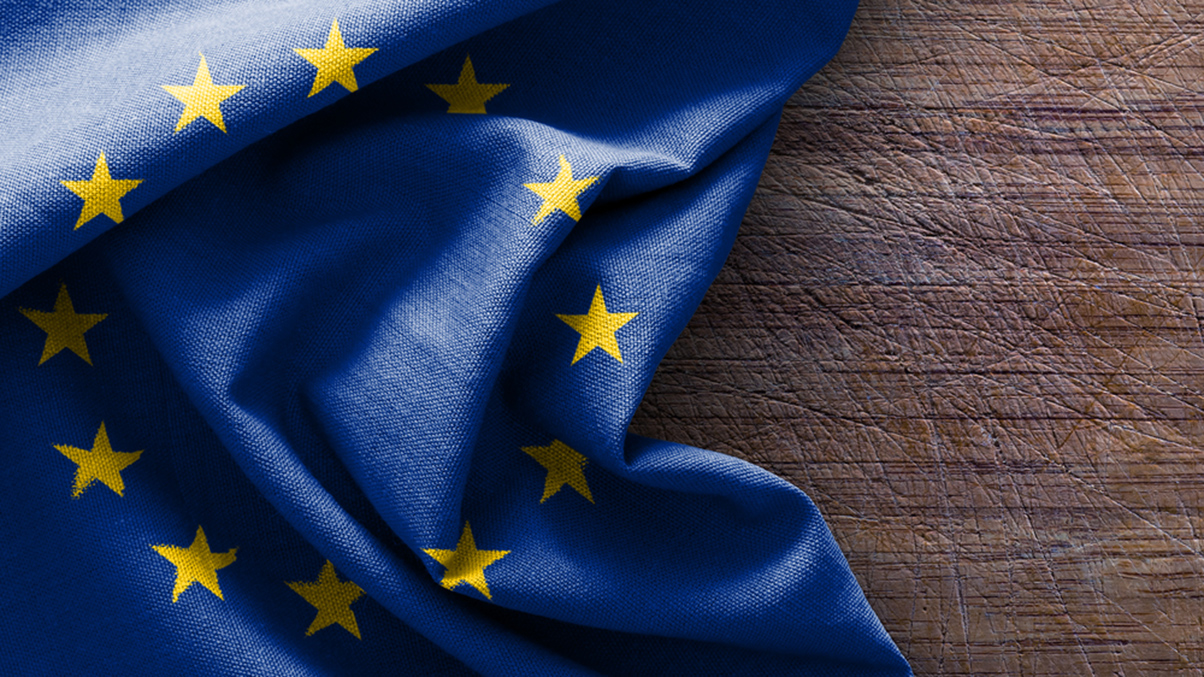The new edition of Global Investigations Review’s Guide to Sanctions includes the latest information and expert commentary on sanctions and export control regimes around the world, compliance programmes, and sanctions in practice. David Savage has once again written the EU Sanctions Enforcement chapter of the guide.
In this third and final part, David considers recent enforcement decisions and looks ahead to the future of EU sanctions enforcement. The full GIR Guide to Sanctions is available here.
Recent enforcement decisions
Although the number of enforcement actions within the EU remains low compared to the US, there is a positive trend in the number of actions and the value of the penalties extracted by certain competent authorities. It is clear that EU competent authorities are interested in pursuing actions against individuals and corporates, which has been the modus operandi of US regulators for many years. Ensuring that both classes of potential defendants are prosecuted should serve to promote top-level commitment to effective sanctions compliance, as well as a risk-averse attitude to problematic activity at all levels within an organisation.
Set out below are a few of the key sanctions decisions from the past three years.
Belgium
On 7 February 2019, it was announced that three Belgian companies, AAE Chemie Trading (AAE), Anex Customs (Anex) and Danmar Logistics (Danmar), were convicted for exporting chemicals to Syria without a licence. Council Regulation (EU) No. 36/2012 (as amended) prohibits the ‘transfer or export, directly or indirectly’ of equipment, goods or technology ‘which might be used for the manufacture and maintenance of products which might be used for internal repression’. In breach of this regulation, AAE, Anex and Danmar were alleged to have exported to Syria 168 tonnes of isopropanol, 219 tonnes of acetone, 77 tonnes of methanol and 21 tonnes of dichloromethane in 24 deliveries from 2014 to 2016.
The Court imposed conditional fines of up to €500,000 and suspended prison sentences for one managing director and one manager.
This case demonstrates the severity with which those in breach of sanctions can be treated, notwithstanding that there was no evidence that the dual-use goods were intended to be used for nefarious purposes and that domestic screening failures had resulted in the breaching shipments.
Denmark
On 11 November 2020, the Danish State Prosecutor for Serious Economic and International Crime announced charges against a Danish marine fuel trader, Dan-Bunkering, suspected of violating EU sanctions on Syria by delivering 172,000 tonnes of jet fuel in 33 transactions to Russian warplanes stationed there. The transactions, carried out between 2015 and 2017, amounted to 647 million kroner. On 14 December 2021, Dan-Bunkering was fined 30 million kroner while profits of 15 million kroner were also confiscated. The CEO of the company was handed a four-month suspended prison sentence. In addition, Bunker Holding was fined 4 million kroner. The verdict affirmed that EU courts are willing to hold business managers personally accountable for their company’s breaches of sanctions.
France
On 29 March 2019, the Sanctions Commission of the French Banking Regulator (the ACPR) conducted disciplinary proceedings against the bank Raguram International (Raguram) and rendered its decision on 8 April 2019.
The Sanctions Commission found that, between 2015 and 2017, Raguram recorded thousands of foreign exchange transactions that breached EU and French regulations for failing to identify and verify its customer base and for failing to integrate lists of persons targeted by EU regulations into its systems and controls framework, resulting in an inability to comply with EU and national asset freeze measures. Raguram had further failed to correctly report to the ACPR that it had inadequate systems and controls to ensure compliance with anti-money laundering and asset freeze obligations because, at the time of the report, it had not recognised that its controls environment was defective.
No penalty was issued, as the bank had purchased a compliance solution prior to the grievance being identified during an on-site inspection, and had implemented enhanced controls for customer identification and verification.
This decision demonstrates that competent authorities expect companies to continue to review and enhance their internal systems and controls framework. Companies that have demonstrated proactivity in terms of remediation have often received reduced penalties in recognition of their proactive approach to compliance.
Germany
In March 2021, two German citizens were convicted by the Hanseatic Higher Regional Court in Hamburg for violating an arms embargo on Russia imposed after the annexation of Crimea in 2014. According to investigations, the individuals sold metal processing equipment, which could have been used in military missile production, to Russian clients. To circumvent checks on these dual-use goods, the individuals made contracts with fictitious recipients and forged documents, and the goods ultimately ended up with a defence end purchaser. Along with a prison sentence, the main defendant was also fined more than €8 million, that being the price he received for the equipment in question. The second defendant was sentenced to two years’ probation and handed a fine.
The German Federal Court of Justice also considered a number of cases relating to payments made to members of the Islamic State in breach of Article 2.II of Regulation (EC) No. 881/2002. The Court had to consider whether the making of a private benefit to an individual is considered as making the same benefit ‘available’ to an organisation associated with that individual. The Court ultimately ruled that the phrase ‘made available’ should be interpreted broadly, which serves as a compliance lesson to any individuals or corporates looking to make payments to those linked in whatever way to parties designated by the EU.
The Netherlands
On 18 February 2019, the Limburg court convicted Dutch company Euroturbine BV and its Bahrain-based subsidiary Euroturbine SPC for exporting gas turbine parts to Iran without a licence. It imposed fines of €500,000 and €350,000, respectively, finding that sham legal structures were established to circumvent export controls. It also imposed custodial sentences on two individuals and sentenced a third to 180 hours of community service.
On 7 February 2020, the Limburg court imposed penalties of €600,000 and more than €4 million on the same entities for breaching EU and Dutch export controls on Iran. The penalties represent the value obtained by each entity as a result of their illegal transport of gas turbine components to Iran without an export licence.
The future of EU sanctions enforcement
Sanctions are a key tool for supporting the EU’s foreign policy objectives, which include ‘safeguarding EU’s values, fundamental interests, and security’. However, for that tool to achieve its full potential, proper implementation and enforcement of sanctions by EU Member States is fundamental. Indeed, in September 2019, Ursula von der Leyen called for ‘proposals to ensure Europe is more resilient to extraterritorial sanctions by third countries and to ensure that the sanctions imposed by the EU are properly enforced throughout its financial system’.
To reinforce this objective, on 19 January 2021, the Commission published a Communication entitled ‘The European economic and financial system: fostering openness, strength and resilience’ (the Communication). The Communication ‘sets out how the EU can reinforce its open strategic autonomy in the macro-economic and financial fields by improving the implementation and enforcement of EU’s sanctions’ regimes, and increasing the EU’s resilience to the effects of the unlawful extra-territorial application of unilateral sanctions and other measures by third countries’. Proposals in the Communication included the following.
- The Commission, as the institution in charge of monitoring and coordinating the implementation of EU sanctions under the TFEU, will from 2021 contribute to the assessment of the effectiveness of EU sanctions.
- In 2021, the Commission will also conduct a review of practices that circumvent and undermine sanctions, including the use of cryptocurrencies and stablecoins. The results of this will inform possible legislative proposals or implementation guidelines from 2022.
- In 2021, the Commission will develop a database, the Sanctions Information Exchange Repository. This will enable prompt reporting and exchange of information between Member States and the Commission on the implementation and enforcement of sanctions.
- The Commission is setting up an expert group of representatives of Member States on sanctions and extraterritoriality.
- The Commission will work with Member States to set up a system to centralise notifications and the dissemination of information across Member States, and to help coordinate Member States’ replies, in full compliance with the division of competences in the treaties.
- The Commission will discuss the implementation of EU sanctions with Member States to ensure a harmonised approach in this regard.
The proposals fall short of the establishment of an EU-wide sanctions enforcement body, which could have built on the work already undertaken by RELEX, and there is limited information available on the status quo of those initiatives.
On 16 March 2022, Commissioner McGuinness, the European Commissioner for Financial Stability, Financial Services and the Capital Markets Union stated:
“We need to ensure that those who provide services – financial, legal and others – to oligarchs to facilitate sanctions evasion are fully aware of the risks they run. We will investigate any and all efforts to breach our sanctions legislation and there will be consequences for violations. The focus of our work is to stop money flowing to the Russian war machine. Wealthy oligarchs supporting the Russian war machine need to know that they will not find any safe haven in the EU or elsewhere.”
While the bloc has historically been reticent in establishing a centralised monitoring body, as it would require significant funding and a legislative mandate for which there has historically been little appetite, the developments of the past few months may ultimately lead to a tightening of enforcement policy and supervision. With the gradually increasing rate of enforcement activity, it seems clear that certain EU Member States are prepared to take sanctions-busting activity seriously, and companies should prepare for an increased focus on enforcement of EU sanctions going forward.
You can find further information regarding our expertise, experience and team on our Financial Crime page.
If you require assistance from our team, please contact us.
Subscribe – In order to receive our news straight to your inbox, subscribe here. Our newsletters are sent no more than once a month.



